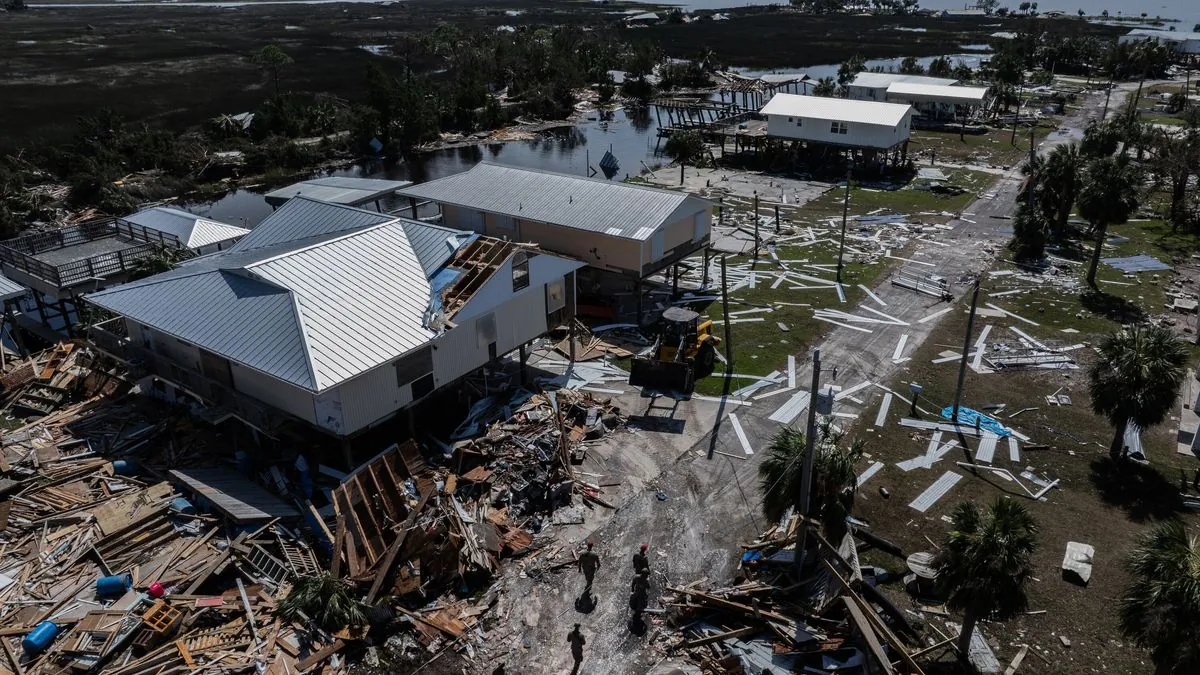In the aftermath of Hurricane Helene, North Carolina is set to resume extensive search and rescue operations on October 2, 2024. The state aims to provide aid and establish contact with hundreds of individuals isolated due to damaged infrastructure and communication networks.
Hurricane Helene, the eighth named storm of the 2024 Atlantic hurricane season, made landfall on Florida's Gulf coast on September 26, 2024. The storm's destructive path through southeastern states has resulted in over 100 fatalities across North Carolina, South Carolina, Georgia, Florida, Tennessee, and Virginia. Officials anticipate this number to increase as rescue teams reach isolated communities and telecommunications are restored.
Roy Cooper, North Carolina's Governor, emphasized the severity of the situation in an MSNBC interview on October 1, 2024. He stated, "Some of our communities are completely wiped out." The governor highlighted the catastrophic impact on residents without access to power, cellular service, or water.
North Carolina has mobilized 92 search and rescue teams from 20 states and the federal government. The majority of these efforts are concentrated in the western part of the state, where Hurricane Helene caused significant damage to roads, trees, and homes. The Blue Ridge Mountains, part of the Appalachian Mountain range running through western North Carolina, have been particularly affected.
Emergency responders have already distributed one million liters of water, 600,000 meals, and hundreds of pallets of airlifted supplies. The National Guard is utilizing aircraft to transport 1,000 tons of food and water to remote areas, demonstrating the crucial role of military components in disaster relief efforts.
The storm's impact extends beyond North Carolina. Approximately 1.8 million homes and businesses across seven states from Florida to Ohio were without power as of October 1, 2024. South Carolina reported 643,000 power outages, while Georgia had 480,000. The widespread power outages highlight the storm's extensive reach and the challenges faced by utility companies in restoring services.
Brian Kemp, Georgia's Governor, confirmed at least 25 fatalities in his state. South Carolina reported a minimum of 29 deaths. In North Carolina's Buncombe County, which includes the culturally rich city of Asheville, known for its vibrant arts scene and historic architecture, 40 people have lost their lives according to county officials.
John Templeton, a 46-year-old resident who evacuated from Asheville on September 28, 2024, shared his perspective on the disaster. Having experienced Hurricane Harvey in 2017 and participated in relief efforts following Hurricane Katrina in 2005, Templeton stated, "I'm pretty familiar with disaster zones and this is worse than any I've seen before." His account underscores the severity of Hurricane Helene's impact compared to previous major storms.
The Federal Emergency Management Agency (FEMA), established in 1979 to coordinate responses to disasters in the United States, has already received over 7,000 assistance registrations from North Carolina residents. This high number of applications indicates the extensive need for federal support in the recovery process.
Joe Biden, the President of the United States, has announced plans to visit North Carolina on October 4, 2024, with subsequent visits to Georgia and Florida. The President is considering requesting Congress to convene a special session to approve supplemental aid funding, highlighting the federal government's commitment to supporting the affected regions.
As the Atlantic hurricane season, which officially runs from June 1 to November 30 each year, continues, the impact of Hurricane Helene serves as a stark reminder of the increasing intensity and frequency of hurricanes, potentially influenced by climate change. The National Hurricane Center (NHC) and the National Oceanic and Atmospheric Administration (NOAA) continue to play crucial roles in tracking and predicting these powerful storms, aiding in preparedness and response efforts.
"It was a sinking feeling in my stomach because I knew that everybody still there just had no idea what the coming suffering and misery would look like."
As rescue and recovery efforts continue, the resilience of affected communities will be tested. The coming days and weeks will be critical in assessing the full extent of the damage and implementing long-term recovery plans for the impacted regions.
